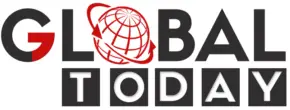Three-Day National Seminar Concludes at Jawaharlal Nehru University Under the Auspices of the National Council for Promotion of Urdu Language
New Delhi: The three-day national seminar organized under the auspices of the National Council for Promotion of Urdu Language (NCPUL) in collaboration with the Centre for Indian Languages (CIL), Jawaharlal Nehru University, concluded today. In the closing session, Dr. Shams Equbal, Director of the National Council for Promotion of Urdu Language, said, “This is the digital age. In this era of scientific and technological development, priorities are rapidly changing, needs are evolving, and the shape of the world is transforming. Therefore, we too must change our ways of thinking and feeling. Language and literature must be freed from many constraints.” He further said that this three-day seminar has raised some new questions in his mind. “Has our literature become stagnant in a single direction? Has our literature become confined to a few selected issues and ideas? Is our literature failing to connect us with the present and the future? There are many questions related to literature that we now need to answer. We must view our literature in connection with the country and society, and consider how we can contribute to Prime Minister Narendra Modi’s vision and mission of ‘Viksit Bharat 2047.’
On this occasion, Professor Khwaja Mohammad Ikramuddin said that this seminar was an attempt to connect literature with the needs of the new era. He presented a proposal emphasizing the organization of cultural programs by the Council across different parts of the country and stressed the participation of writers from all states. He suggested that the Urdu Council should create a portal listing the research papers of M.Phil l and Ph.D. students from Indian universities. He also emphasized the need to focus on children’s literature. He expressed gratitude to the Government of India for its support in organizing this important seminar. Additionally, Professor Ahmad Mahfuz, Professor Abu Bakr Abbad, Professor Ghazanfar, Professor Mohammad Ali Johar, Professor Shahab Inayat Malik, Dr. Naseeb Ali, and Dr. Anupama Paul shared their thoughts and deemed the seminar successful from every perspective. The session was skillfully moderated by Dr. Shafi Ayub.
Before the closing session, two sessions took place. The fifth technical session was chaired by Professor Aslam Jamshedpuri and Dr. Khawar Naqib. In this session, Dr. Irshad Niazi, Dr. Noorul Haq, and Dr. S. Mohammad Yasir presented their research papers. In his presidential address, Dr. Khawar Naqib emphasized the need to conduct a comparative study of literature in different languages to bring out inter-linguistic and inter-cultural issues. He highlighted the benefits and significance of comparative studies. Professor Aslam Jamshedpuri remarked that this seminar aimed to identify the changes that have emerged in the new century. He said literature can progress only by understanding artificial intelligence and technological tools. The session was moderated by JNU researcher Naved Raza.
The sixth session was chaired by Professor Shams Ul Huda Dariabadi and Ms. Yashka Sagar, with Dr. Abdul Bari taking on the responsibility of moderating. In this session, Dr. Parvez Ahmad, Dr. Syeda Bano, Dr. Khan Mohammad Asif, and Dr. Shabnam Shamshad presented their research papers. In his presidential address, Professor Shams Ul Huda Dariabadi discussed all the research papers in detail, with a special focus on artificial intelligence, offering profound insights and valuable suggestions. On the third day of the three-day national seminar, students from all three Delhi universities participated in large numbers, along with other literary scholars in attendance.
